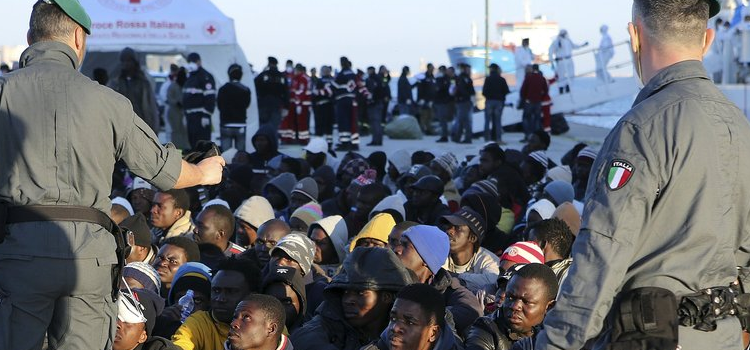Refugees and migrants travelling through Libya in the hope of finding safety and stability when arriving to Europe undergo horrifying abuse including sexual abuse, torture and exploitation.
Thousands have lost their lives already trying to make the sea crossing to Europe – at least 2,742 this year alone.
A report by Amnesty International women are raped and forced to be wives of some of the militia men.
“Sexual abuse is endemic for refugees travelling through Libya, so much so that women have told us they take contraceptives before travelling, because they expect to be raped and want to avoid becoming pregnant as a result of it. Women are constantly at risk of sexual violence at the hands of smugglers, traffickers, armed groups or in immigration detention centres,” says the report.
One of the victims identified as Amal from Eritrea was forced into sexual slavery after being abducted near Benghazi by the armed group calling itself Islamic State (IS), in Libya.
The 21-year-old escaped her country and travelled through Sudan after her mother was imprisoned. She wanted to get away from indefinite military service that had prevented her from going to university and from seeing her family for one and a half years.
One of the victims identified as Amal from Eritrea was forced into sexual slavery after being abducted near Benghazi by the armed group calling itself Islamic State (IS), in Libya.
“IS caught us at the end of July 2015. They separated us into Christians and Muslims and then they separated the men and women. They put us in two cars to take us towards Tripoli and put us in a big palace-like place,” she says. They were kept for nine months. “Then they told us they would release us, but only if we converted [to Islam], so we did. After we converted, they said they would make us into their own slaves and maids,” she says.
Another Eritrean, Abdurrahman, says when he arrived in Libya in June 2015, smugglers handed him over to a criminal gang who held him captive to extort a ransom from his family.
“They stopped all of us in a house in Ajdabya and made us call home for money. There was an Ethiopian man who watched us and if anything happened the Libyans would come and beat us – in Ajdabya there was about 10 of them [Libyans]. There were about 250 people in the house. We all slept on the floor with men and women in the same room… We had to stay for as long as it took to get the money. I stayed for a week,” he says.
Before attempting his first sea crossing to Italy in January 2016, Abdurrahman was forced to work for smugglers to pay for his travel.
He says there was little food and they were beaten every day.
“They used sticks and sometimes electric stun guns,” he says.
The report also shows the inhumane conditions refugees are held.
“Detention centres in Libya are the stuff of nightmares. Actual, modern-day dungeons. And they operate under the Ministry of Interior, so these abuses we are hearing about are perpetrated in detention facilities under the control of the Libyan authorities. And when they are not suffering in detention centres, refugees and migrants are being trafficked, abused, exploited, raped and killed on the outside with no protection from the authorities,” says the report.
In April this year, the International Criminal Court Chief Prosecutor, Fatou Bensouda expressed concerns over abuse of refugees and migrants.
Abductions, detentions and ill-treatment in detention centres continue to be reported. The Mediterranean-Libya migratory route to Europe remains a popular option among refugees and migrants who are particularly vulnerable to violence, sexual violence and ill-treatment in Libya,” she said in her report to the UN Security Council.
She noted that ddetention of thousands of migrants continues to be a source of financing for many militant groups in Libya.
“We as, the international community, must take a closer look at who profits from criminal activity in Libya, and take coordinated steps to prevent further violations. This must be a priority for all who are affected by the criminal trafficking of human beings,” she said.
ICC is still conducting investigations on the situation in Libya.
Libya is not a State Party to the Rome Statute, consequently the UN Security council had to intervene. The council referred Libya to the in February 2011 and investigations were opened March 2011.
Read Amnesty International Report here: Through their eyes: refugees’ own accounts of abuses in Libya







